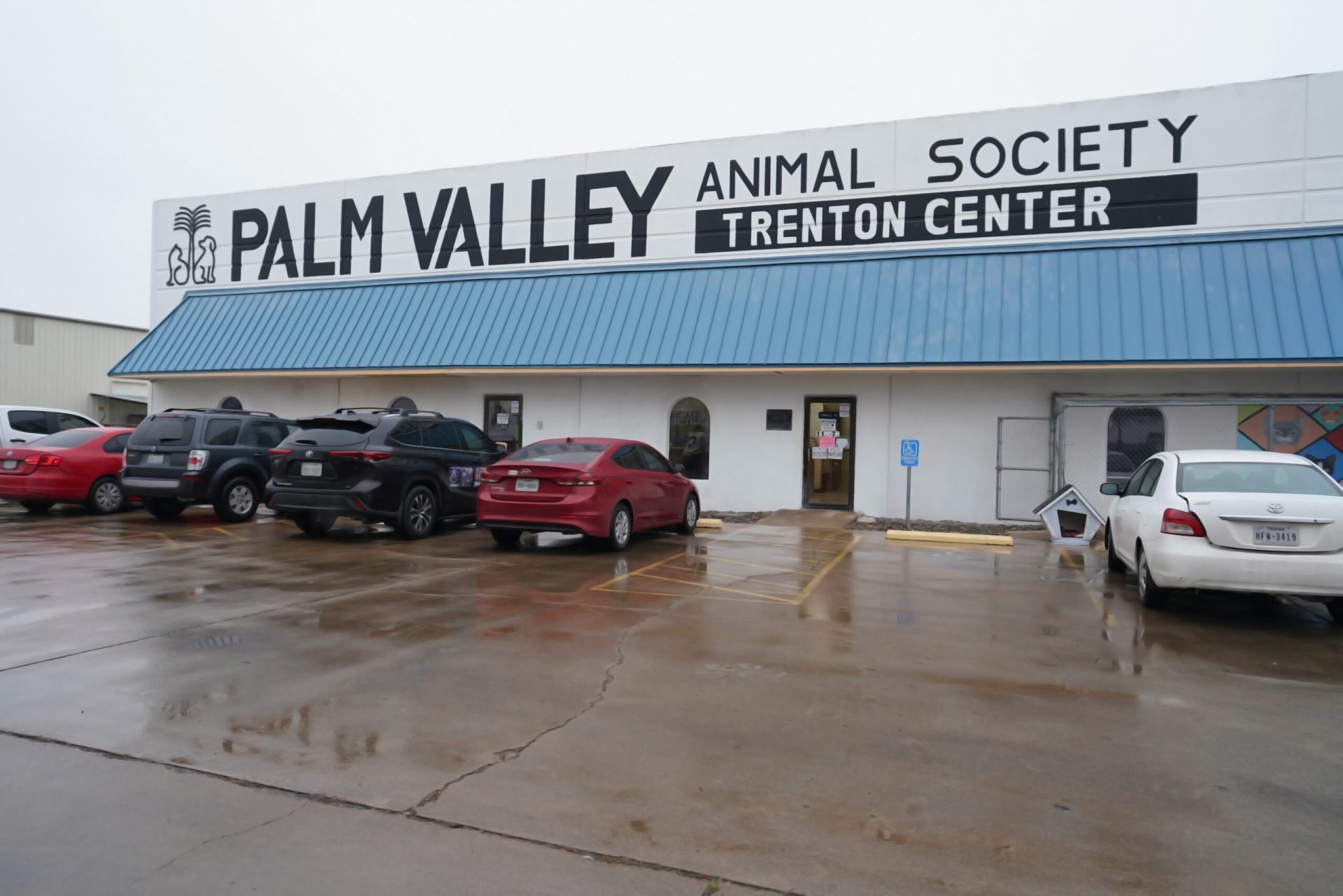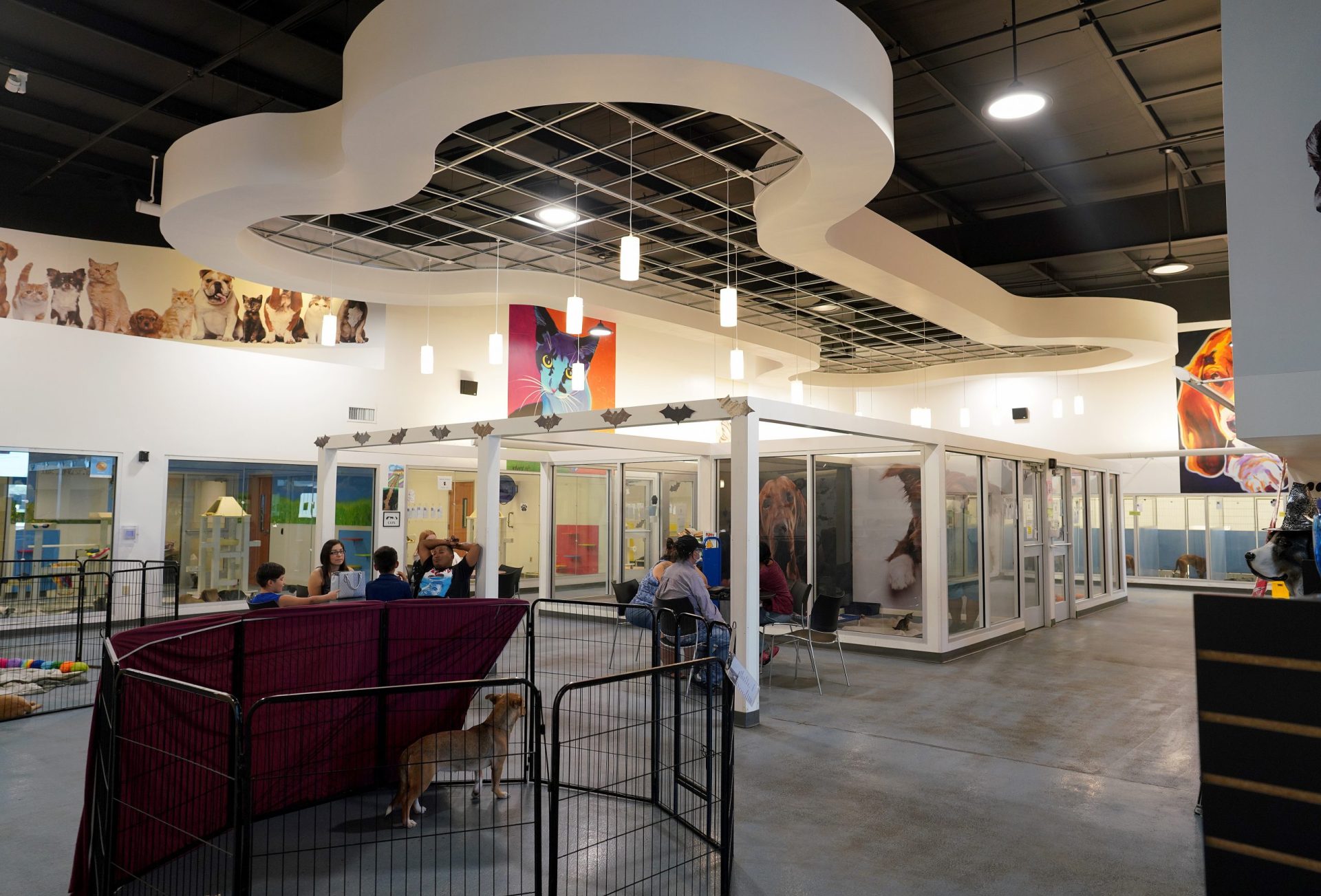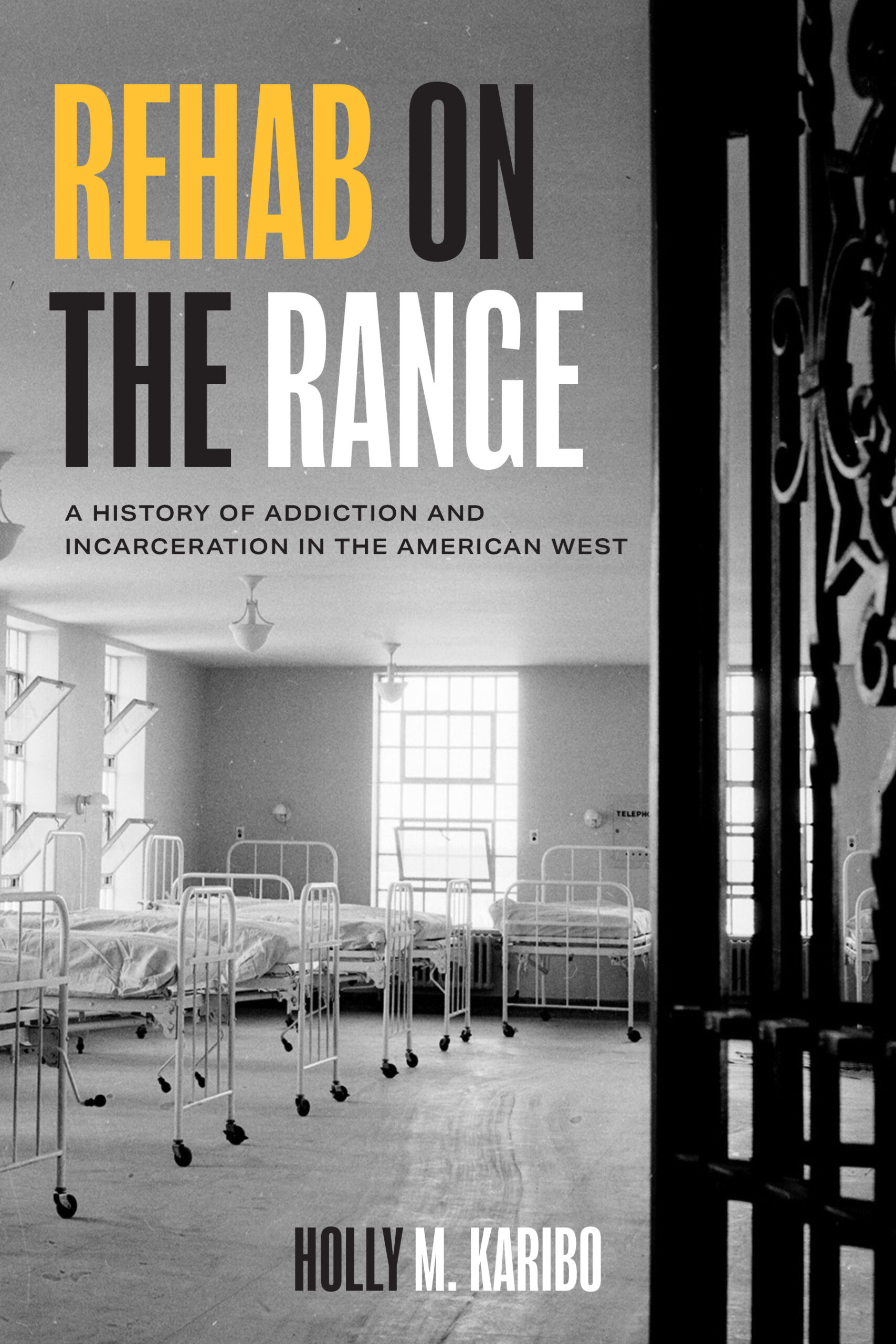McALLEN — The scope of work has changed in the partnership between the city of McAllen and Palm Valley Animal Society’s plans to overhaul the region’s largest animal shelter facilities.
Now, instead of demolishing PVAS’s 50-year-old shelter located along Trenton Road, they and McAllen officials have decided to focus on the much newer and more expansive Laurie P. Andrews Center, located along I-69-C north of Edinburg.
After months of discussions — as well as the city’s concrete $820,000 commitment toward the design of a new shelter — both sides have agreed to shift gears in order to get the most bang for McAllen’s buck.
“We’re working with PVAS to design a center that both functionally and procedurally makes the most sense for McAllen and other communities that might use the center,” McAllen City Manager Isaac Tawil said after a McAllen City Commission meeting last week.
There, the commission had just unanimously approved a $19,250 contract with Shelter Planners of America, an Ohio-based company, to “assess existing and proposed functions” at the Andrews center.
The contract calls for Shelter Planners to analyze current and future shelter operational needs, and to develop “a building space program for animal housing, administration, and support services,” as well as outdoor space uses, according to documents included as part of the Nov. 25 meeting’s agenda packet.
Tawil said the conversations began to shift toward renovating the Andrews center about 4-5 months ago, after officials realized that a ground-up rebuild at Trenton would be prohibitively expensive.
“A considerable amount of additional capital would be required to rehabilitate the Trenton side, and so right now, what we’re looking at is putting those dollars into Laurie Andrews Center so that we can maximize the benefit that we’re receiving,” Tawil said.
The original plan called for demolishing and then rebuilding the Trenton shelter over three phases. Doing so would have taken about 10 years and millions of dollars, according to Suzette Cruz, executive director of PVAS.
 The Palm Valley Animal Society on Saturday, Jan. 22, 2022, in Edinburg. (Joel Martinez | jmartinez@themonitor.com)
The Palm Valley Animal Society on Saturday, Jan. 22, 2022, in Edinburg. (Joel Martinez | jmartinez@themonitor.com)Aside from the $820,000 that McAllen appropriated for the shelter design earlier this year, PVAS had committed to come up with another $2 million in fundraising for Phase 1 of the project.
But that would have only covered part of the cost for that phase.
“If Phase 1 was $6 million, we were assuming (Phases) 2 and 3 were gonna cost equally as much. So, we were looking at $12 million or more, probably, to renovate the whole property,” Cruz said of the Trenton site.
So officials turned to the Andrews location, which opened its doors in 2015.
At the time, the facility was lauded as a state-of-the-art shelter that boasted roomy spaces for potential adopters to meet their new furry friends, including community cat rooms and manicured outdoor dog runs.
PVAS currently uses only about 2 of the 6 acres of land at the Andrews site, giving the shelter 4 acres in which to grow — something that could be done in less time and at a fraction of the cost of the Trenton site, Cruz said.
PVAS estimates renovating Andrews will cost “the same amount of money” or less than Phase 1 of the now-scuttled proposal to rebuild the Trenton site. And instead of taking up to a decade to accomplish, Andrews could be renovated in about two years.
Once all is said and done, PVAS will no longer be using the Trenton facility at all.
“The (PVAS) board of directors did make a decision to consolidate to one location,” Cruz said.
 Pets wait for adoption at the Laurie P. Andrews Center on Wednesday, Oct. 19, 2022, in Edinburg. (Joel Martinez | jmartinez@themonitor.com)
Pets wait for adoption at the Laurie P. Andrews Center on Wednesday, Oct. 19, 2022, in Edinburg. (Joel Martinez | jmartinez@themonitor.com)Overhauling the animal shelter is something that has been in the works for years. But the idea didn’t really begin to pick up steam until the city of McAllen began to shift how it viewed animal control.
That evolution — which included renaming “animal control” to “animal care” and moving oversight away from the McAllen Police Department to the city’s public health and code enforcement division — came about largely due to a philosophy shift from McAllen’s former city manager, Roel “Roy” Rodriguez.
At the same time, PVAS was undergoing a philosophical evolution of its own.
Once considered a high-kill shelter that regularly took in 40,000 animals per year and euthanized as many as 32,000 of that number, PVAS now operates at a much lower capacity.
These days, the shelter takes in less than 10,000 animals per year and no longer accepts animals besides cats and dogs.
“We are definitely seeing a lot less animals,” Cruz said. “Last year, in 2023, we saw about 8,800 animals come into our doors. This year, we’re looking at less than 7,000.”
Still, the financial costs associated with holding stray animals, quarantining them, feeding and providing veterinary care for them have gone up while the shelter’s original facility, which opened in 1974, has continued to suffer the effects of its age.
Strong rains flood the property. Cold weather puts dogs held in outdoor kennels at risk. And in general, the facility struggles to keep up with the modern demands of stray animal care.
Further, PVAS hasn’t had a permanent veterinarian on staff since 2021.
Because of that, the shelter has had to rely on once-a-month visits from veterinarians through a Dallas-based nonprofit called Operation Kindness, as well as the goodwill of veterinarians that “do some relief work” during brief trips to the Rio Grande Valley, Cruz said.
 A cat peers out at the Laurie P. Andrews Center on Wednesday, Oct. 19, 2022, in Edinburg. (Joel Martinez | jmartinez@themonitor.com)
A cat peers out at the Laurie P. Andrews Center on Wednesday, Oct. 19, 2022, in Edinburg. (Joel Martinez | jmartinez@themonitor.com)PVAS and McAllen are hoping some of the shelter’s other big-name partners will hop on board with the renovation plans, especially now that the focus is on the Andrews center.
PVAS maintains contracts with several local government entities to house and adopt stray animals. But aside from McAllen, its largest other partners are the city of Edinburg and Hidalgo County.
McAllen spends about $1 million per year on PVAS, not including several one-time appropriations it has made for animal control studies or, as in this case, to pay for the design firm to look into the renovation possibilities at the Andrews facility.
Meanwhile, the city of Edinburg, which also operates its own shelter facility, approved a $700,000 appropriation for PVAS for the 2024-25 fiscal year,
And Hidalgo County, which last year briefly considered severing its relationship with PVAS, approved a $1 million appropriation for 2025 — a reduction of $250,000 compared to the previous year.
But thus far none of PVAS’s other partners have joined in on the renovation plans.
Both shelter officials and the city of McAllen hope that will soon change.
“We are in constant communication with both Edinburg, the county and other stakeholders who may be interested,” Tawil, the McAllen city manager said.
“We are certainly hopeful that they’ll join us in our effort to provide the best possible care for our four-legged friends,” he said.
The post Palm Valley, McAllen shift focus on animal shelter renovation appeared first on MyRGV.com.
 (2).png)
 3 months ago
106
3 months ago
106








 English (US)
English (US)